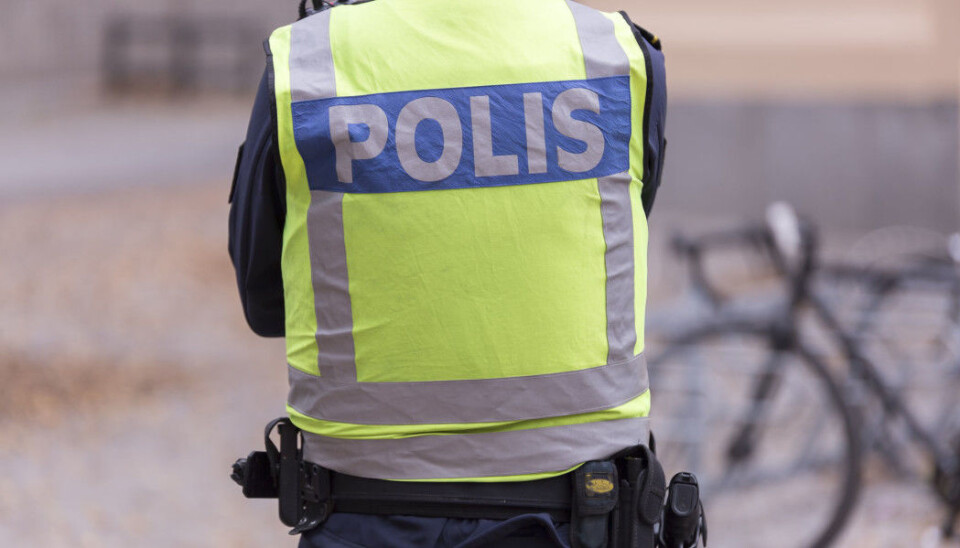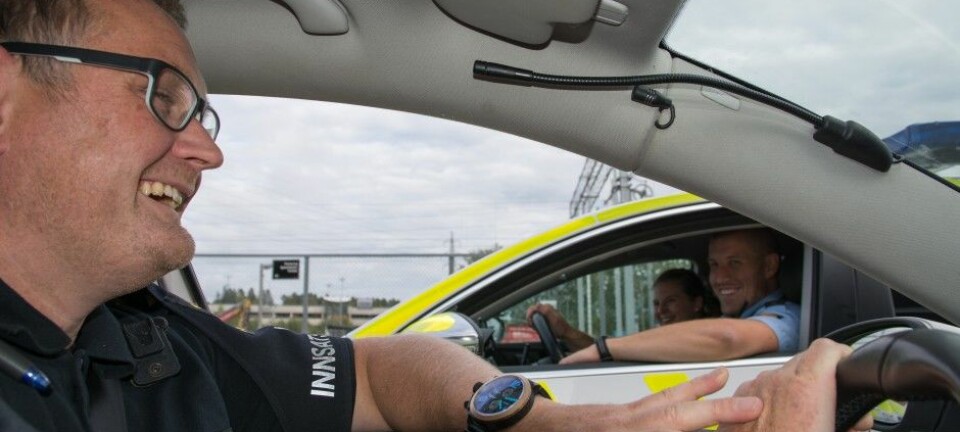
Fear of reprisals muzzles Swedish police
The consequences of working in a culture of fear can be serious.
We expect law enforcement officers to pursue wrongdoers and speak the truth. But it turns out that some men and women in uniform don’t necessarily feel free to do this when it comes to their own workplace.
A Linköping University researcher found that the majority of 33 Swedish police officers she interviewed about their working conditions said they did not want to speak up about problematic situations on the job because of fear of reprisals.
"I felt it was wrong to hold back, but I knew: If I open my mouth now, it’s all over. I won’t be welcome here anymore. So I chose to remain silent," one of the officers told researcher Malin Wieslander, who is a postdoc at the university.
"Most people reported that they or others have encountered unpleasant consequences when they have spoken up," Wieslander said.
Her interviewees reported hearing rumours about colleagues who have been cut out, frozen out, relocated in a worse position or bullied until they quit. But where did this information actually come from? Wieslander wanted to know.
Afraid of the boss
Wieslander followed 100 police officers at three different Swedish police forces for 104 hours to see how they worked.
Whether she was in the break room or a police car, she heard the same kinds of stories again and again, about the police officer who dared to challenge the management, but was put in his or her place.
Wieslander had no idea in advance that the work environment was so bad.
"You could feel the mood in the corridors. There was a thick layer of pessimism and unease," she said.
This was in 2015, shortly after a general pay settlement had been reached with the Swedish police. Stories of poorly behaved police had been leaked to the media, and management wondered why employees had not spoken to them about the problems.
The following year, Wieslander was invited to a police district to map out both the opportunities and hindrances for people to report problems internally.
When she presented her report, managers still seemed surprised at how bad it was — and that they themselves were the main problem.
Sick of the pressure
The 33 police officers she interviewed chose to come to talk to her about the working environment. They were thus not randomly selected.
It may be that officers who are the most frustrated are those who decide to speak up. However, the individuals who had been involved in the media scandal did not step forward to talk to her.
The officers mostly wanted to talk about how the organization worked — or didn’t. Serious problems, such as sexual abuse or corruption, are relatively rare, even though these types of problems have been reported in other studies.
Most often, those who spoke up had suggestions for how the organization could work better. For example, the officers thought that conducting widespread checks of drivers’ blood-alcohol levels wasn’t the most efficient way to stop drunken driving. But officers felt they could not share this opinion with their superiors.
The consequences of this kind of culture can be serious: increases in sick leave, psychological problems, employees who quit.
The "truth" about the police
But do police officers really have reason to fear reprisals if they speak up?
Statements such as "Everyone knows", "It's always been like that" and "It happens all the time" create an understanding that this how the police force operates.
As one officer said: "It doesn’t matter how much truth is behind the rumours. If someone says it, then it’s seen as the truth."
The stories spread from police station to police station, far from the people who were actually sanctioned.
"People often don’t know if the people involved actually experienced reprisals. For example, it’s hard to know the exact reasons why an officer isn’t promoted,” says Wieslander.
Culture of silence
Some speak up anyway, but the officers Wieslander spoke to largely follow the informal rules that suggest the best approach is to keep quiet.
"There is a culture of silence that is being reinforced and recreated all the time," she said.
Newcomers are warned to be careful. "I tell all my trainees that they should never say what they think. (...) Don’t make the same mistake as I did,” said an experienced cop in the survey.
Norwegian police too
A recent survey suggests that some Norwegian uniformed police officers also experience wrongdoing or problems without speaking up.
In 2016, nearly 3,000 employees were asked if they had seen situations in the workplace that deserved reporting during the past year.
This could be anything from management who caused problems in the working environment to conditions that could endanger life or health.
Twenty-nine per cent answered that they had seen these kinds of problems. Only about half spoke up about them.
This has led some researchers to describe the police force as having a culture of fear. But the picture is more complex, says Brita Bjørkelo, a professor at the Norwegian Police University College.
She is behind a new survey along with Hege Høivik Bye at the University of Bergen.
"I think what Wieslander has described can also be found in Norway. That doesn’t mean that it is like there throughout the police force. There is more than one police culture," says Bjørkelo.
Reference:
Malin Wieslander: Learning the (hidden) silence policy within the police. Studies in Continuing Education, 2018. Not yet published.
-------------------------------------
Read the Norwegian version of this article at forskning.no.








